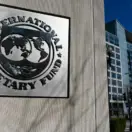By Ilhan Niaz
Published in Dawn on October 05, 2025
Future Ready: Innovation, Abundance and the Global South
By Uzair Younus
Liberty Publishing
ISBN 978-627-7626-66-2.
228pp.
Future Ready: Innovation, Abundance and the Global South is an exceptional work that explains the non-linearity of development and applies lessons from history to provide a blueprint for how countries in Pakistan’s position can socio-economically breakthrough.
Uzair Younus, host of the Pakistonomy podcast and presently co-chair of digital innovation at the Asia Group, has done what the sum total of Pakistan’s paid consultants and status-quo rationalising economists have thus far failed to do — articulate a compelling vision of a better future and provide a roadmap for how to get there. This is a work of developmental grand strategy that draws upon history, political economy, and philosophy, and it deserves to be widely read and engaged with.
For Younus, this perspective is basically rubbish because it grossly simplifies how industrialisation took place in the West (segmented, sectoral, often random) and also on account of the present-day availability of technologies that can allow poorer countries to engage in serious leapfrogging.
A new book offers sharp, engaging and valuable insights about developmental paths, and communicates complex ideas in an easily comprehensible and relatable way
A superb illustration of this is provided by Younus’ examination of the energy sector. Like most Pakistanis of his generation, Younus is deeply traumatised by Pakistan’s inept handling of its electricity supply. From rotten deals with independent power producers (IPPs), to outages of supply, uncompetitive energy costs, and reliance on hideously expensive imported fossil fuels, one might well think that Pakistan’s power sector bureaucracy and the fat-cat corporates they align with easily outdo Modi’s India in their animosity towards Pakistan. As Younus points out, in the financial year 2024-25, Pakistan allocated a whopping USD 4.3 billion for subsidies for its power sector — equal to about one percent of its nominal GDP.
Starving a population of energy is a recipe for economic stagnation. Subsidising energy production from fossil fuels is a recipe for ecocide and a drain on the country’s balance-of-payments. This is where decentralising energy production through solar and wind becomes critical. As prices of renewables fall, their on-grid and off-grid use explodes, and the classical grid becomes a stabilisation resource to manage variability in solar and wind generation.
The government can help this process along or it can try to impede it in order to save the vested interests that benefit from the existing configuration. In Pakistan, the government appears to have underestimated its citizens’ thirst for energy and their ability to mobilise resources and technical skills. As Younus explains, for any Pakistani leader actually interested in the country’s development, solarisation is a godsend. It allows energy constraints to be overcome, quality of life to improve, and is conducive to greater productivity.
As Younus puts it: “Imagine a rural community, where households have solar rooftops connected to a localised battery energy storage system. This community can be self-sufficient and energy-independent, allowing its members to live without worrying about energy scarcity. Since both solar panels and battery storage systems are modular, as these communities grow — both in terms of population and economic wellbeing — they can add more panels and storage systems. Over time, much like the ways in which roads and railways connected previously isolated parts of the world, decentralised grids can be connected to one another, creating a resilient and modern electricity transmission system.”

Uzair Younus
Another very important dimension is the financial sector. Once more, Pakistanis confront the tyranny of linearity in the thinking of elites. The traditional story is that of snowballing concentration in capital manifested in big banks, big industries, and big ticket government spending on things like infrastructure. A person from a developing country might well be forgiven for confusing concentration with development. After all, just look at the big banks, companies and government projects in the developed world. In the minds of our elites, concentration equals development while, in fact, you can have a high degree of concentration of capital with low levels of developments (the reality of many developing countries).
The problem arises when, in looking at the glittering skylines of the West, one fails to perceive that developing countries, like Pakistan, end up locked in a situation of concentration without development. So yes, capital does get accumulated and concentrated, but it gets stuck in a low-risk-decent-return loop, so that lending to the government or to a small percentage of large firms is all that is deemed worth pursuing.
Younus explains how this stunts economic development by rendering nearly the entire population unworthy of investment and much of it unbankable as well. This is where digital finance apps, to process payments and create a friendly ecosystem for small entrepreneurs, can come in — with the additional benefit that they help document the economy and make taxation easier.
What should the state be doing amidst all this? Building bypasses that turn into canals when it rains? Doling out subsidies to the well-fed friendly faces government leaders have lunch with at the Islamabad Club or Kohsar Market? Declaring an education emergency before falling back to sleep?
Well, that is the big problem for Pakistan. Younus describes, from personal experience, how bad or poorly timed policy can stymie entrepreneurial growth. He also provides a roadmap that addresses different components of what governments can do. The most vital elements in it are the shedding of legacy infrastructure and commitments, and using subsidies and development expenditure to accelerate the non-linear development path.
While Younus omits this from his list, Universal Basic Income (UBI) would be a good example of a subsidy worth experimenting with, as it would reinforce decentralisation and augment the purchasing power and the digitisation of the population. Pakistan can, Younus suggests, set its sights on phasing out an entire category of fossil fuel-powered vehicles as soon as 2030. He also, rather optimistically, exhorts the government to converse with actual experts in emerging fields rather than the usual suspects deemed to have expertise in development.
All told, Future Ready is a fantastic book. It is sharp, engaging, full of valuable insights, and it succeeds in communicating complex ideas in an easily comprehensible and relatable way. For all those Pakistanis (and Global Southers) who love bellyaching about how bad things are and the lack of big, fresh, ideas from their countrymen, Younus has something for you to chew on.
But the question remains: can a ruling elite like Pakistan’s, which isn’t even ready for the 20th century past, ever get its act together to be ready to navigate the 21st century present and future? Ninety-nine percent of overseas and ‘underseas’ Pakistanis sure hope they do. But one can’t advise anyone to hold their breath, waiting for enlightenment to dawn on Pakistan’s fine assortment of power-intoxicated muggins.




